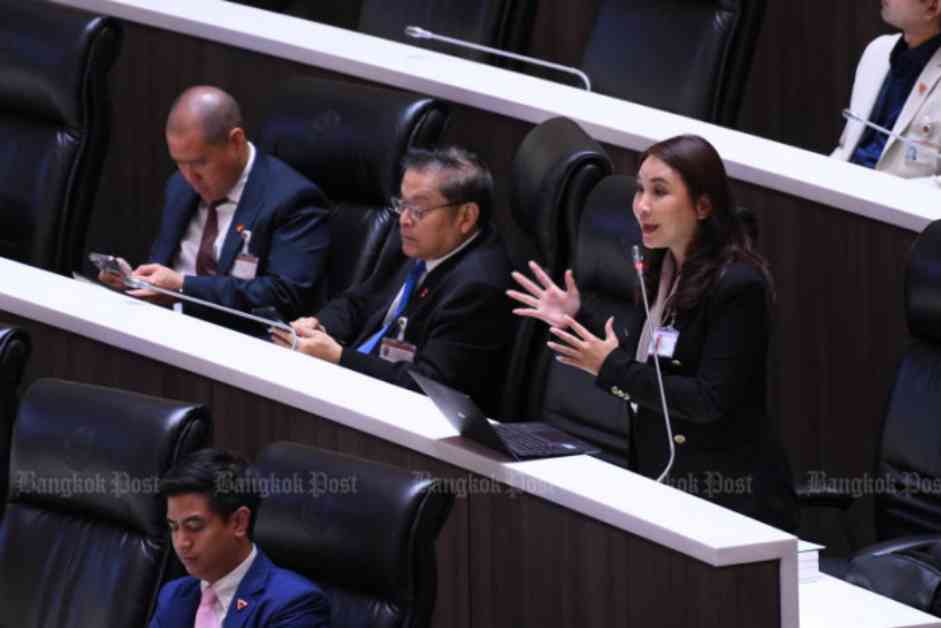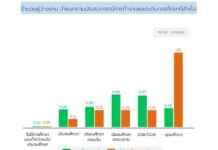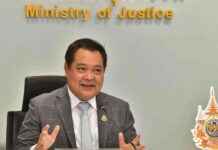Thailand’s Credit Rating at Risk, Opposition Warns
Thailand is facing a critical risk of credit rating downgrades as its government struggles to manage a mounting debt burden that threatens to strain the country’s finances. The People’s Party, the largest opposition group in Thailand, has issued a warning about the dire consequences of the government’s failure to rein in its public debt.
In a recent interview in Bangkok, Sirikanya Tansakun, the deputy leader of the People’s Party, expressed grave concerns about the escalating interest burden on the government. She highlighted that the interest liability as a ratio to state revenue is projected to surpass key thresholds monitored by credit ratings agencies by fiscal year 2026. According to Sirikanya, the interest burden is expected to increase to approximately 13% of government revenue by 2026, a worrisome development that could jeopardize Thailand’s credit ratings.
The opposition’s concerns stem from the lack of a concrete plan by Prime Minister Paetongtarn Shinawatra’s administration to address the growing public debt and interest payments. Despite the government’s efforts to stimulate the economy with fiscal measures during the pandemic, Thailand’s post-pandemic recovery has been sluggish, putting additional strain on state finances.
Thailand’s sovereign rating, currently at Baa1 by Moody’s and BBB+ by S&P and Fitch, remains a few notches above junk grade. However, the mounting debt levels and rising interest burden pose a significant risk to the country’s creditworthiness. The opposition warns that without decisive action to manage the debt, Thailand could face credit rating downgrades in the near future.
Subheadings:
Challenges of Rising Debt
Impact on Credit Ratings
Opposition’s Criticisms and Recommendations
The ratio of interest burden to revenue is just one of the factors considered by credit ratings agencies when assessing a country’s creditworthiness. Thailand’s interest-to-revenue ratio is projected to climb to 12.2% by 2026, up from an estimated 8.15% this year and 9% in 2025, according to calculations by the Fiscal Policy Office. The substantial increase in the interest burden reflects the government’s higher spending, partially funded through borrowing, to support the economy’s recovery.
Prime Minister Paetongtarn Shinawatra’s government has emphasized cash stimulus measures to boost economic growth, including distributing funds directly to vulnerable populations. However, the opposition argues that such massive stimulus efforts may not be the most effective approach and could have long-term consequences on the economy. The opposition also cautions against pressuring the central bank to cut interest rates, advocating for a more balanced and sustainable economic strategy.
The threat of political instability adds another layer of uncertainty to Thailand’s economic outlook, further unsettling foreign investors. The recent political turmoil, including the disbandment of the Move Forward party and judicial activism, has raised concerns about the country’s governance and rule of law. The opposition asserts that the government must address these challenges and restore confidence in the stability of the political and legal system.
Subheadings:
Political Instability and Economic Uncertainty
Challenges of Governance and Rule of Law
Restoring Confidence and Stability
As Thailand grapples with the economic fallout of the pandemic and political upheaval, the need for prudent fiscal management and sustainable economic policies becomes increasingly urgent. The opposition’s warnings about the risks to Thailand’s credit rating serve as a wake-up call for the government to take decisive action to address the mounting debt and interest burden. By implementing sound financial practices and fostering political stability, Thailand can navigate these challenges and safeguard its economic resilience in the long run.




















